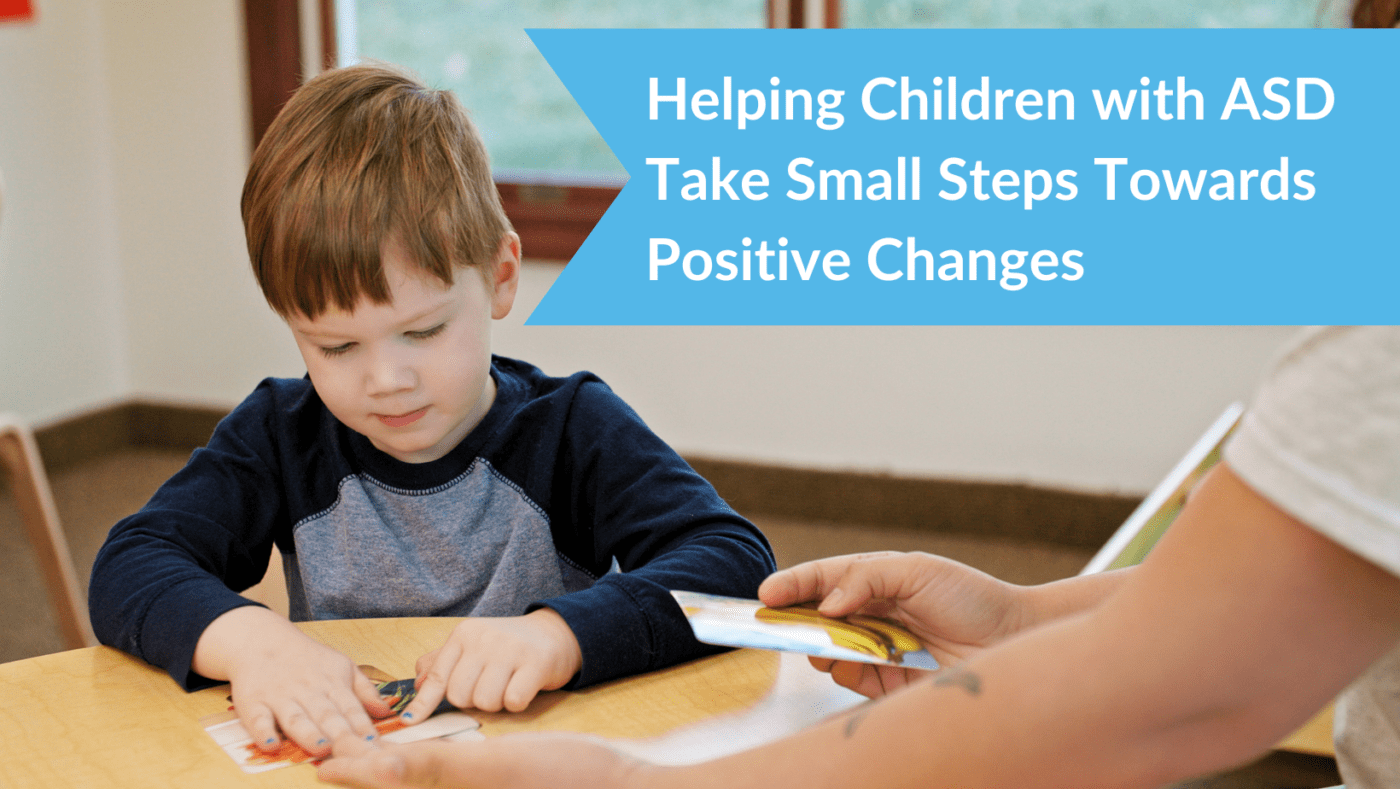In a resource written by the National Association of School Psychologists, they provide a wealth of information for helping your child make positive changes in small meaures. Great accomplishments and long-term goals are not achieved overnight. Success is usually the result of hard work, deliberate practice, persistence, and trial-and-error learning. For children with ASD, this often takes time, with many small steps creating a positive direction along the way. The resulting path can be filled with obstacles that may hinder or delay progress but, with persistence, don’t halt it altogether. We can reinforce persistence by recognizing and celebrating children’s small steps toward achieving positive outcomes.
Families can help children make positive changes in small increments in many ways. As parents and caregivers of a child with ASD, you can:
- Praise attempts and success, and make sure you focus on the effort or hard work put into the success.
- Emphasize that learning and growing require trying new things and that success comes from small steps to a long-term goal.
- Encourage goal setting and mapping out a plan for achieving the goals. Talk with your child about steps they have taken, what worked and what didn’t, what they might do next
- Help your child internalize a sense that they can achieve by reinforcing the skills already developed and encouraging them to try new challenges.
- Help your child identify their strengths and interests and learn new skills.
- Create an environment at home that allows your child to explore building (playing with blocks, helping with projects, and more), drawing (crayons, finger paints, paper), and music (on the radio, with children’s instruments, or through formal training through school or community resources). This may help to identify special interests.
- Emphasize the importance of the deliberate practice of a new or old skill for further development and that talent is developed over time through skillful practice.
- Help your child work through setbacks, or lack of self-confidence, by helping to identify negative thoughts that may suggest concerns about his or her ability to be successful.
- As a parent, you can help children see the small steps and how persisting and overcoming obstacles is a part of succeeding. Help your child realize that setbacks are not permanent or all-encompassing.
- Demonstrate, through your own behaviors, how to identify and achieve long-term goals by thinking aloud, creating a pathway of short-term goals, and using problem-solving and decision-making skills along the way.
- Help your child develop positive relationships with peers and adults and model respectful, caring behaviors with others.
- Encourage your child to participate in community activities that may help them to develop positive behaviors. In particular, volunteer activities may encourage the development of positive behaviors. Consider participating in community events yourself as role model.
- Seek out support systems available in the community to help your child learn new skills and thrive, such as parent organizations, non-profits, tutoring or mentoring programs.
About NASP
The National Association of School Psychologists (NASP) represents and supports the profession of school psychology by advancing effective practices to improve students’ learning, behavior and mental health, and by maintaining essential standards for ethics and practice. Read more.
About BlueSprig Pediatrics and the BlueSprig family of companies
BlueSprig, founded in 2017, is a leading provider of Applied Behavior Analysis (ABA) treatment services to children with autism spectrum disorder (ASD). BlueSprig is committed to providing compassionate, individualized, and evidence-based behavior analysis treatment. Headquartered in Houston, TX, BlueSprig is a nationwide provider of ABA treatment with 140+ locations. For additional information about BlueSprig or to receive updates, visit www.bluesprigautism.com.
